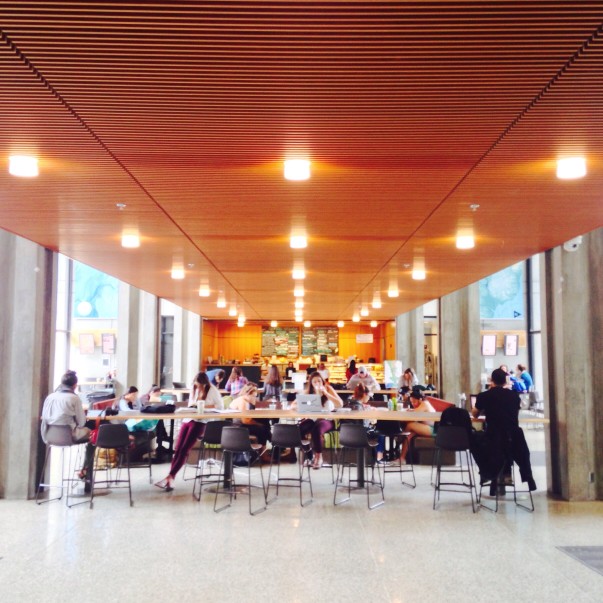In the beginning, God put Adam in the garden “to tend and keep” it (Genesis 2:15). Theologians have seen something more in this than an incidental phrase. Instead, they have seen a general commission from God to humanity to labor creatively for the betterment of the world and the flourishing of humanity.
I think it is suggestive that the Bible uses gardening as a metaphor for our labor. I want to tease out some of the suggestions implied by the gardening metaphor and offer some thoughts about what it might mean for the labor of governance. If God has given us a commission to tend and keep the garden of the world, how do we tend the garden through our political institutions?
I.
My wife and I kept a garden for the better part of a decade. I built raised garden beds from planks of wood, bought and mixed soil and manure. Together we and our kids tilled the soil, turning it to ensure a rich mixture of nutrients and creating lines in the dirt for orderly planting. We tied off string to create a grid and put the seeds into the soil at even intervals. We erected a trellis to give the plants a structure on which to grow. We took the raw stuff of nature and imposed order upon it.
Then, we stepped back and let the plants grow. At the end of the day, we could never make the plants grow; they grow by the design given them by their Creator as reflected in their DNA and in the death and rebirth of seeds. In all our gardening, we never actually created anything new: we simply provided an orderly structure and gave life the liberty it needed to flourish, and then waited for life to take its course.
Gardening requires order: the bed, the right soil, the orderly lines, the trellis. But gardening also requires liberty: stepping back, letting life take its course, recognizing that things have their own nature, understanding the nature of each plant and providing the resources and preconditions for its flourishing, but nothing more.
Gardening teaches that life flourishes when given both order and liberty. When God made mankind and gave us a commission to be like him as laborers, stewards and caretakers of his creation, he made us gardeners, tenders of a system of ordered liberty in which life flourishes.
II.
What does ordered liberty look like in our political lives? Christians have seen in the Bible justification for almost every form of government—in part because the Bible is relatively silent about regime type and constitutional forms, and in that silence Christians in different ages have tended to read into that silence their preferred political program.
I want to respect Christian liberty and not make the Bible say something it does not say, so I want to be careful not to read too much of my own preferred political program into it. But the gardening metaphor seems to give us warrant for at least one statement of Biblical politics: Governments which respect the idea of ordered liberty are governing in a way most conducive to human flourishing—which is a pretty good description of justice. If governments should aim at creating and upholding a system of ordered liberty, Christians cannot and should not claim Biblical warrant for any kind of total or complete order, nor for any kind of total or complete liberty.
The yearning for total order is behind authoritarian and tyrannical government, including theocracy, military dictatorships, totalitarian regimes, and other forms of authoritarian rule (and theocracy of course has other theological problems with it). The Prophets were persistent in their condemnation of the nations for oppression. Not much has changed. Today we see the drive for total order alive and well in dictatorial governments around the world, like China, Russia, North Korea, Iran, Saudi Arabia, and most of the Middle East.
The yearning for total liberty is expressed most purely in anarchism, which is rare today (though it was popular at the turn of the 20th century). Some extreme forms of libertarianism come close to a theory of total liberty. But the best example of total “liberty” in actual practice is the sad reality of failed states. States like Somalia, Haiti (especially after the 2010 earthquake), the Democratic Republic of the Congo, and swaths of rural India, Pakistan, or Afghanistan lack any semblance of functioning government. The people can be said to be “free” of government, which might sound wonderful to those steeped in the Anglo-American tradition of distrust of government power. Yet we should leaven that tradition with Biblical truth: Government is ordained by God and it is necessary for human life. The lack of governance is a moral failing and a deprivation of a fundamental good.
III.
Does that mean the Bible supports liberal democracy? Almost; the Bible alone doesn’t quite get us there. It is more accurate to say that Biblical principles plus a reasonable knowledge of history and human nature virtually requires us to support some version of democracy, accountable and limited government, and civil liberties.
Jonathan Leeman has helpfully made a distinction between different tiers of belief in political matters. He argues that there are certain absolute principles, Tier 1 issues, like the sanctity of life, on which the Bible speaks clearly and which should bind our consciences. Tier 2 issues are those on which the Bible is less clear, or silent, and which are thus a matter of wisdom, prudence, and judgment, on which we should expect more latitude for disagreement. Leeman uses this distinction to say that life and justice are Tier 1, while the mechanisms and machinery of democracy is Tier 2.
I want to use a modified version of this and make a slightly stronger case for liberal democracy. As I argued above, the broad idea of ordered liberty is a Biblical principle and thus a Tier 1 issue: Christians should never be on the side of tyrants or anarchists. The question is: what kind of institutions and mechanisms are best suited to achieve and sustain ordered liberty across the generations? I stress the last bit because it is a crucial part of the question typically unaddressed by critics of liberal democracy.
Here is where I want to bring in evidence from history and social science, tools that allow us to come to more specific and concrete conclusions than if we restricted ourselves only to theological arguments. On the basis of theology alone, we can’t say much more than that governments ought to protect ordered liberty. But we can ask historians and social scientists: what regimes in history and practice have a proven record of safeguarding ordered liberty across the generations? There is, of course, only one answer: governments that are held accountable by some form of representation and elections, and that are limited by some notion of fundamental rights and the rule of law. In short: republican or liberal democratic regimes.
There may have been benevolent, enlightened monarchies or Caesaropapist regimes with a close church-state cooperation that upheld ordered liberty for a generation or two because of the charitable whim of an individual ruler, but they have always collapsed because they have no mechanism for the reliable transfer of power, and they lack the rule of law to keep bad rulers in check.
So is liberal democracy a Tier 1 or Tier 2 issue? For the moment, I think of it as a Tier 1.5 issue because, although it is only an institutional mechanism for securing ordered liberty and not explicitly mandated by Scripture, we don’t have an alternative, we never have, and we don’t know of any other possible mechanism from history. There are no other regimes that have ever successfully upheld and sustained ordered liberty across the generations.
Since there are no alternatives, it seems foolish to reject the one option we have. I am using “foolish” in the Biblical sense: The Bible commands wisdom and condemns foolishness. Since we have been blessed to live at this time of history, when we can consult the wisdom of the ages and see the evidence of liberal democracy’s performance over against the performance of every other type of regime, we would be culpably and possibly sinfully foolish to reject any and all forms of liberalism.
IV.
Defending the justice of liberal democracy is an unpopular thing to do. While we enjoy its privileges, it is fashionable to criticize liberalism, to point out its flaws, or to blame it for cultural decay. That is what animated Patrick Deneen’s argument in Why Liberalism Failed and that is what animates most of the post-liberal right and its infatuation with nationalism. Even those who are willing to defend liberalism on pragmatic grounds seem almost embarrassed by the idea, conceding democracy’s benefits while always hastening to add that, of course, that doesn’t mean democracy is the only legitimate form of government.
To the post-liberal critics of liberalism—to the nationalists, Catholic integralists, and those who agree with Patrick Deneen and Sohrab Ahmari’s arguements—my challenge to you is twofold. First, I challenge you to explain whether you agree or disagree about the fundamental justice of ordered liberty as an organizing principle of our political lives. Second, if you concede the primacy of ordered liberty, I challenge you to argue from history or political science what alternative you believe will be more successful than liberal democracy.
To the rest of the readership, those who are on the fence or who find themselves sympathetic towards our liberal democratic heritage but uncertain about defending its justice, my challenge is different: have the courage of not only our convictions, but the convictions of those who came before us and bequeathed to us the regime from which we benefit. Liberal democracy is a gift, a providential accident, even a “miracle,” in Jonah Goldberg’s argument. To acknowledge that it is imperfect is to acknowledge that we are human: nothing in life is perfect because we are still bound to this fallen order in our earthly pilgrimage. To expect otherwise is to commit the sin of utopianism. In the meantime, bewailing our imperfections is far less interesting—and far less responsible—than preserving the remarkable gift we have and passing it on to the next generation.



